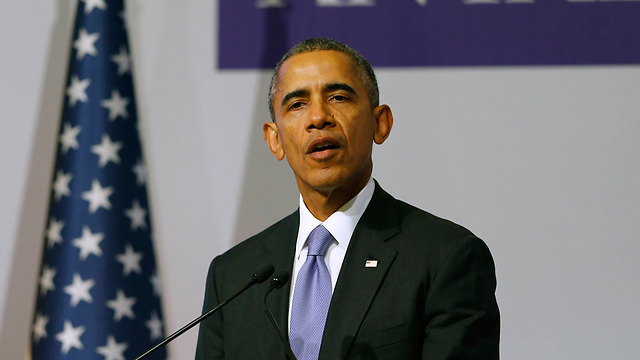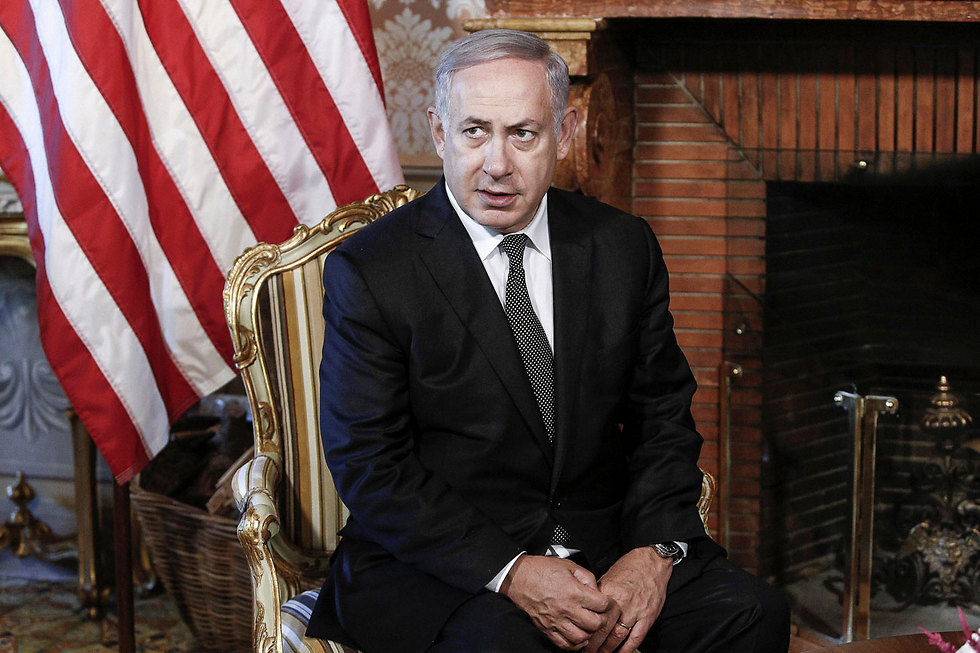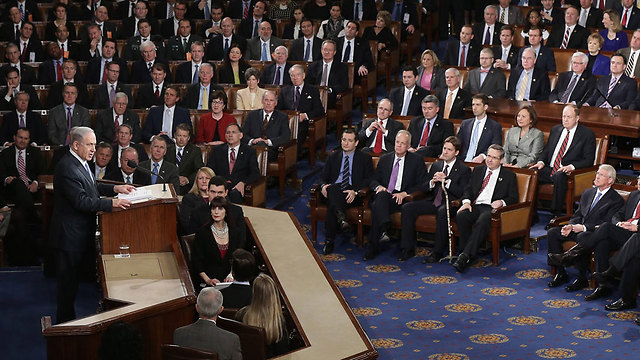
Kerry's Memoir: Netanyahu leaked a confidential draft of a ceasefire deal with Hamas
Former US Secretary of State describes Netanyahu’s willingness to take risks for peace, even at the price of dismantling his coalition; On the leaking of the 2014 deal with Hamas: 'An element of personal trust had been lost,' Kerry wrote.
Kerry depicted Netanyahu, who was not very fond of the Barack Obama administration, as a pragmatic leader who is willing to risk his position for peace, but also as the person who leaked information to the media and hurt US interests.
He described his deep disappointment from Netanyahu and Palestinian President Mahmoud Abbas, for not meeting his expectations for peace negotiations, and explained the Obama administration’s decision to abstain from last years United Nations vote against the settlements:
“Bibi’s attitude was ‘I’m open to solving this problem if I can have all my needs met.’ That included his political needs with his coalition.”
“Netanyahu told me that as long as his terms are accepted, he is willing to take chances for peace, even at the price of dismantling the coalition,” Kerry wrote. “My talks with Netanyahu helped convince Obama, who was skeptic, to reinvigorate the peace process,” and added that Obama wanted to put Netanyahu’s “willingness to make tough compromises” to the test.”
Former Secretary of State also added that Netanyahu was willing to consider releasing pre-Oslo Palestinian prisoners in order to resume peace negotiations: “I told Bibi in no uncertain terms, ‘If you’re not willing to release them, I understand — but this won’t work and I’m done with it.’ When he was confronted with this deadline, for the first time, he said, ‘Okay, let me see what I can do.”
Kerry tells of his meeting with Netanyahu, a few days after Obama’s speech in Israel in 2013, in the King David Hotel in Jerusalem: “He looked me dead in the eye and said, ‘John, I’m willing to give this effort a try, but there are two things you should know: first, everyone in this region lies all the time and you Americans have a hard time understanding that; second, the most I can do may be less than the least Abbas could ever accept.’ That statement really stayed with me. Bibi was raising the bar, perhaps impossibly.”
Kerry also tells about Netanyahu’s refusal to Gen. Allen’s plan, according to which in a case an Israeli withdrawal from the West Bank, US troops will be positioned on the borders of the future Palestinian state, alongside the IDF in full readiness for any attack that might come.
The morning after they had presented the plan to then-Defense Minister Moshe Bogie Ya’alon, Netanyahu had decided that the IDF needs to remain the West Bank, and Israel will be the only one to decide when it is to leave.
“It was now clear to all of us that Bibi was not interested in actually addressing the security questions in a way that could allow for the eventual withdrawal of the IDF,” Kerry writes. “I concluded that this wasn’t about security. I wondered what Bogie Ya’alon had said to Bibi the night after we’d left… I let him know I thought he was creating an insurmountable stumbling block if he couldn’t accept the best advice of one of his ally’s most brilliant military minds. He smiled and said we’d table the discussion for now.”
In the tense days of Operation Protective Edge four years ago, Kerry and Netanyahu met and discussed the FAA’s decision to suspend flights to Israel due to the rocket threat:
“It was the few times I saw Bibi very subdued, absent his normal energy and bravado. To see the leader of Israel under siege like that really touched me… I saw Bibi in that moment more vulnerable than I’d ever seen him before.”
However, Kerry blamed Netanyahu for leaking the confidential draft of a ceasefire deal with Hamas: “We were in the middle of negotiating it based on your input. Now I see it in the press? This is outrageous,” Kerry told Bibi. “The humanitarian cease-fire was your idea. And now you leak this document to make it sound like I am trying to advance Hamas’s position?” An “element of personal trust had been lost,” Kerry wrote.
This was followed by Netanyahu’s visit to the US six months later, during Israel’s election time, and culminated in his speech at the US Congress:
“As an unwavering supporter of Israel who always viewed my differences with Bibi through a political, not personal lens, I was disappointed in him… I thought we deserved better than a speech that hit below the belt.”
Kerry also touched upon the outrage that broke following the US’s decision not to veto UNSC 2334: “We all understood the political firestorm we would face if we didn’t veto the resolution… There were some who argued for sucking it up because it wasn’t worth the political price. President Obama wasn’t willing to make a decision that he thought was counter to US interests simply because of the politics.”
He explained that Trump’s decision to appoint of David Friedman as US Ambassador to Israel was what impelled Obama to abstain from the UNSC vote: “President-elect Trump had announced he was going to appoint an ambassador to Israel who was a hard-core proponent of the settlements and an avowed opponent of the two-state solution."
Kerry continued: "At the same time, the Israelis had shown themselves to be completely disdainful of our policy by starting a process of formally legalizing outposts… We could not defend in the UN Israeli actions that amounted to a massive and unprecedented acceleration of the settlement enterprise.”

Kerry wrote that in spite of harsh Israeli criticism, he feels he has to act:
“I remember sitting with former undersecretary of state Wendy Sherman in my office with a draft of the speech I was planning to give about the resolution. Wendy and I both have strong ties to the Jewish community. She reminded me of what we both understood: ‘Mr. Secretary, If you give this speech, you’re going to lose some friends.’ I looked out of the window of my office over the Mall in Washington and said to Wendy, ‘I understand that. But I have done a number of things in my life because I thought it was the right thing, not because it was easy.”
Kerry also tells of the Obama administration’s willingness to consider releasing Jonathan Pollard in an effort to revive the Israeli-Palestinian peace talks in 2014. Obama was apparently very skeptical about releasing Pollard, since he didn’t believe Netanyahu was serious about negotiating a Palestinian state, but did not rule it out.
“I think more because he wanted to support me and his team than because he had any confidence Bibi would follow through.” Kerry wrote. “Netanyahu was urged to come up with a decent offer to convince Obama he should release Pollard and convince Abbas to agree for resuming negotiations”.
“I told Bibi point-blank, ‘You’re not doing this for Abbas. You’re doing it to empower us to get what you want.’” In the end, it was Abbas who foiled the deal by announcing he was going to join several international organizations and violating the terms agreed upon with the Israelis. The move gave Netanyahu the “ammunition” he needed to blame the Palestinians for rejecting peace”.

















